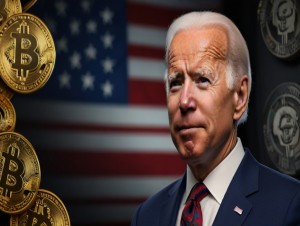China plans revolutionary blockchain infrastructure system. A groundbreaking move by the nation that wants to be the world’s frontrunner in blockchain technology, China’s push to establish a blockchain infrastructure by 2025 showcases a continued commitment to technological innovation.
The plan unfolds in the thriving city of Shanghai, echoing the city’s determination to take a lead in the world’s digital development landscape. The revolutionary endeavor aims to explore blockchain’s potential and its integration within the real economy, public service, and beyond.
China unleashing blockchain potential in Shanghai
By 2025, the bustling city of Shanghai is set to unveil its blockchain infrastructure, a plan that seeks to intensify the application of blockchain within the real economy.
What’s the goal here? To spur independent innovation of core technologies and leverage them to foster Shanghai’s technological prowess. The plan is far-reaching.
It talks about fostering “rapid on-chain and cross-chain deployment capabilities” and highlights the significant progress made in the city regarding the core technology of blockchain.
Not limited to Shanghai alone, similar initiatives are being implemented across various Chinese cities like Nanjing and Zhengzhou, reflecting a nationwide push for Metaverse developments.
However, the ambitious plan doesn’t stop at technological advancements. It’s about a broader vision, a significant leap, and the determination of a city to be at the forefront of the blockchain evolution.
But what does this mean in the global context? What are the implications, and how does it relate to the current international climate?
The global context: Blockchain as a battlefront
This isn’t merely a tale of technological innovation; it’s a story of global rivalry. As tensions between the U.S. and China heighten, blockchain technology and cryptocurrency have emerged as significant battlefronts.
Last year, Chinese President Xi Jinping emphasized that “technological innovation has become the main battleground of the global playing field,” and the competition is getting fiercer by the day.
China’s commanding position in the cryptocurrency realm is evident. Chinese-affiliated cryptocurrency exchanges dominate global trading. The nation has successfully rolled out its central bank digital currency, the e-Yuan, and even expanded its usage across South America and other strategic locations.
Meanwhile, the U.S. is perceived to be falling behind, with only three of the top 15 cryptocurrency exchanges being American companies, and regulatory uncertainty driving significant market players offshore.
The story gets murkier with instances of criminal networks operating out of China, engaging in large-scale crypto theft and fraud like the infamous “Pig Butchering” scam.
While China has showcased its aggressive approach by banning cryptocurrency exchange operations and transactions, the nation has still managed to retain influence over significant trading volumes, leveraging affiliations with Hong Kong.
China’s bold move to develop a blockchain infrastructure system in Shanghai is a testament to its commitment to harnessing technological innovation. But it’s not just about the technology; it’s about geopolitics, economic leadership, and perhaps a new era of global power play.
This venture reflects China’s willingness to push the envelope, to set the pace, and perhaps to challenge the existing world order. It’s about a nation that’s not just content with keeping up but wants to lead, shape, and define the future.
Whether the U.S. or any other global power can catch up remains to be seen. But one thing is clear: China’s revolutionary plan to harness blockchain is more than a technological initiative. It’s a statement, a challenge, and perhaps a glimpse into the future.





